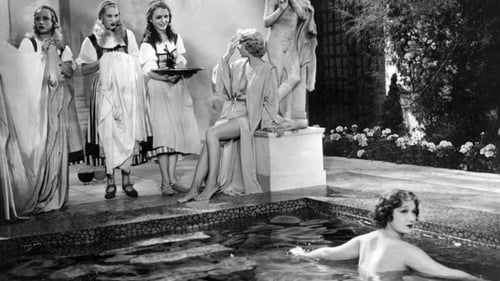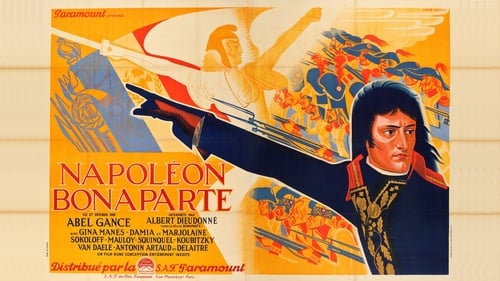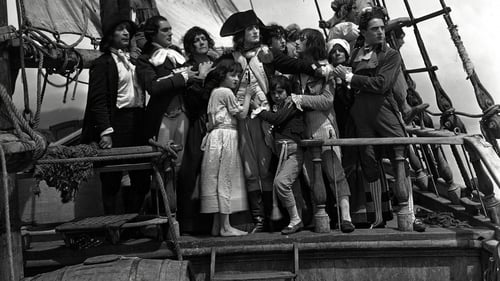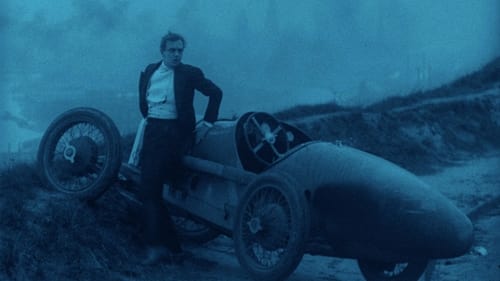Philippe Hériat
Nascimento : 1898-09-15, Paris, France
Morte : 1971-10-10
História
Born Raymond Gérard Payelle, he studied with film director René Clair and in 1920 made his debut in silent film. Over the next fifteen years, he appeared in secondary roles in another twenty-five films including the 1927 Abel Gance masterpiece, Napoleon. In 1949 Hériat collaborated with film director Jean Delannoy to write the screenplay for the film Le Secret de Mayerling.
Philippe Hériat won the 1931 Prix Renaudot for his book L'Innocent. In 1939 he won the Prix Goncourt for Les Enfants gâtés, and the 1947 Grand Prix du roman de l'Académie française for Famille Boussardel.
In 1949 he was made a member of the Académie Goncourt, a position he held until his death in 1971. Hériat is buried in Père Lachaise Cemetery in Paris

Theatre Play
An eccentric Los Angeles dowager decides to fight back when her two greedy daughters attempt to have her declared legally insane.

French silent film pioneer Abel Gance directs this 1935 classic about Lucrezia Borgia, her brother, Cesare. and her father, Pope Alexander VI -- one of history's most ruthless and ambitious crime families.

Lutuf-Allah
A country girl (Simone Berriau) finds work as a chorus girl in Paris, gets embroiled with a bad egg, and then finds true love with a good-looking milkman.

Salicetti
A second version of Gance's Napoléon, with sound.

Diégo
An ex-businessman, ruined and reduced to living under bridges, uses the name of one of his companions in misfortune, Rothchild, to organize a vast scam.

The story of Madame Leroy-Gomez, a wealthy divorcee living in Paris. Together with her servant Antoine she schemes to marry off her unmarried children and fix any issues that arise for those already married.

General Bertrand
Napoleon at Saint Helena (German: Napoleon auf Sankt Helena) is a 1929 German silent historical film directed by Lupu Pick and starring Werner Krauss, Hanna Ralph and Albert Bassermann. The film depicts the final years of Napoleon between 1815 and 1821 during his period of exile on the British Atlantic island of Saint Helena following his defeat at Waterloo.

Gilles de Rays
This relatively straightforward dramatic biography was one of two films commissioned to honor Joan of Arc on the 500th anniversary of her death, but it was soon undeservedly relegated to obscurity in favor of Carl Dreyer's triumphant 'La Passion de Jeanne d'Arc'. The comparison is unfair: Dreyer was an artist, but director Marco de Gastyne certainly proved himself a distinguished craftsman, and his emphasis on the Maid of Orléans early life in Domrémy serves as a picturesque, matching bookend to Dreyer's impassioned courtroom drama.

The ill-fated romance of a brow-beaten seaport slum café waitress and a young man with a possessive mother, who dreams of going out to sea.

Antoine Christophe Saliceti
Este filme biográfico épico de Napoleão abrange muitas das experiências que moldaram o rápido avanço do líder francês. Desde seus dias de escola até seu voo da Córsega, bem como a Revolução Francesa e o terror, culminando na sua invasão triunfante da Itália em 1797.

The life of a great city (Paris) from dawn until dusk, including the beautiful and the ragged, the rich and the poor, with little or no comment from the director, Cavalcanti.

L'aide assesseur
Mathias Pascal, only son of a once-rich family, marries beautiful Romalinda, who has a terrible mother-in-law. She controls her daughter, and soon his home life becomes a nightmare. His only moments of lights are his mother and baby, but both die on the same day. Shocked, he leaves his hometown and goes to Monte Carlo, where he wins a fortune at the casino. Returning home, he reads his own obituary in a paper. They have found a corpse in a creek and connected it with his disappearance. Mathias, noticing that he is now free from all ties to his old life, decides to start a new one.

Djorah de Nopur
A famous singer Claire Lescot, who lives on the outskirts of Paris, is courted by many men, including a maharajah, Djorah de Nopur, and a young Swedish scientist, Einar Norsen. At her lavish parties she enjoys their amorous attentions but she remains emotionally aloof and heartlessly taunts them. When she is told that Norsen has killed himself because of her, she shows no feelings. At her next concert she is booed by an audience outraged at her coldness. She visits the vault in which Norsen's body lies, and as she admits her feelings for him she discovers that he is alive; his death was feigned. Djorah is jealous of their new relationship and causes Claire to be bitten by a poisonous snake. Her body is brought to Norsen's laboratory, where he, by means of his scientific inventions, restores Claire to life.

King Louis XI tries to unify France by all means fair or foul, which does not please his powerful rival Charles the Bold. It is against this troubled backdrop that the loves of the daughter of a wealthy bourgeois and the king's god-daughter Jeanne Fouquet and knight Robert Cottereau unfurl in spite of all the obstacles in their way. One of these being a pack of hungry wolves trying to stop Jeanne from carrying out an important mission assigned to her by the king himself.

La géante
Married carnival performers are subjected to the abuses of their employer in this silent film gem that has not received as much attention as it deserves. When the boss' unwanted advances on the wife are refused, he taunts a lion until it nearly kills her. But the other performers assist in a unique plot for revenge. Jaque Catelain directs and stars in this film made for influential French director Marcel L'Herbier's production company. Some sources also list L'Herbier as co-director, as he is credited here. The film boasts some rapid-fire editing techniques that were decades ahead of its time.

Alban Perrin
In a village on the banks of the Rhone river, Alban, a young farmer, is about to marry Margot. Monsieur Broc, a town hall employee, discovers his daughter is taken with Alban. When he rejects her, she collapses. Suddenly, the river rises and floods the village. One evening, Margot disapears… This peasant drama, adapted from a novel by André Corthis and shot during an actual flood of the Rhone, was Delluc’s last. The human madness is an echo to nature’s fury, magnified by moving images of a Provence submerged by water and mist.

Wagner
Crazy scientist Faust tries to take Don Juan's lover away.

Joao, le bouffon
In Granada in Spain, Sibilla works as a dancer in a squalid cabaret called El Dorado, struggling to earn enough to care for her sick child. The boy's father Estiria, a prominent citizen, refuses them both help and recognition, fearful of jeopardising the engagement of his adult daughter Iliana to a wealthy nobleman. Iliana however slips away from her engagement party to meet her real lover Hedwick, a Swedish painter. Sibilla, in desperation after a further rejection by Estiria, sees an opportunity to blackmail him by locking the lovers overnight in their meeting-place in the Alhambra.

A vamp seduces a banker and breaks with him when she's obtained all that she wanted.

Le protecteur
Nolff, a tough Breton fisherman is happy: his wife has just given birth to a son, Michel. His only wish is to make him a fisherman like him. But when he becomes a man, Michel becomes a good-for-nothing who spends his time in taverns.

Comtesse Della Gentia and her lover Paul attempt to seduce and blackmail a rich neighbour Juan, who is in love with a naïve young friend of theirs, Clarisse. Their plot fails; the Comtesse kills herself at a ball, and her lover re-covers her face with its mask.








